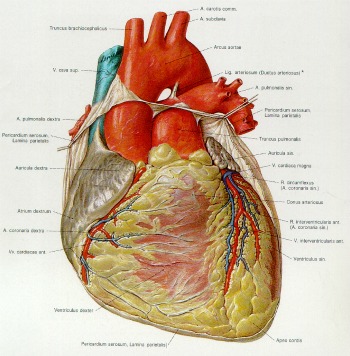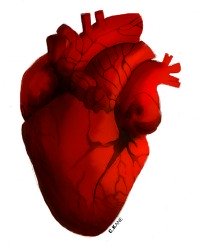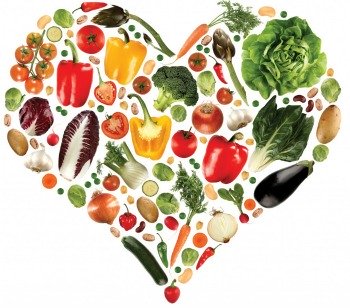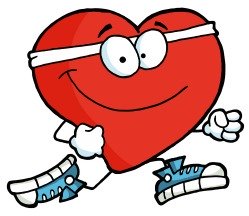”Health….Reach for Heart Arrhythmia”
Heart Arrhythmia-Day in day out the heart pumps blood endlessly through some 62,000 miles of blood vessels!!
That's about 70 heart beat/minute, 4,200 beats/hour and 100,800 beats/day!!
”Should your heart go lub-lub-a-dub or lub-a-dub-dub rather than lub-dub you have arrhythmia.
The condition occurs when nerves that regulate heart beats become irr-regular.”
Normally the heartbeat is rhythmic and even.
But with heart arrhythmia the firing of nerves miss or "over-signal" causing the chambers to open to frequently or not often enough.
When everything is going smoothly the atrial chamber and the ventricular chamber work in unison.
Arrhythmia happens when the nerve conduction are either delayed or a step ahead.
Making the heart pump less efficiently.
You may have spells which last long enough for you to faint.
Or the affliction can be mild to where it strikes for a short 5 to 10 seconds during rest periods with no motion involved.
Two types of heart arrhythmia are: Atrial fibrillation which is rarely life-threatening causing "quivering and choatic contractions."
Then there's: Ventricular fibrillation, the deadly kind. This type generally shows up when you have

What we are going look at today is not the obvious problems that lead to heart malfunctions but the minerals that keep our hearts beating.
On other pages I have elluded to the fact that our hearts pump because we give them the right minerals:
-
Calcium
Magnesium
Potassium
Mineral balance is an important part of the heartbeat. Of the three minerals listed above magnesium plays the largest role.
The risk of developing ventricular fibrillation is cut in half if magnesium is introduced into the diet as needed on a regular basis.
Studies done at the University of North Carolina-Chapel Hill gave test subject who had already experienced heart failure mega doses of magnesium.
However, the doses where administered intravenously with amazing results of over 50% reduction in a second occurrence of heart arrhythmia-ventricular fibrillation.
Potassium effects blood pressure.
Studies have proven a connection between high blood pressure and low potassium intake.
A major problem in western diets.
Good sources of potassium:
Bananas, citrus juices (such as orange juice), avocados, cantaloupes, tomatoes, potatoes, lima beans, prunes, flounder, salmon, cod, chicken, and other meats.
Calcium doesn't effects heart rate.
It effect how hard the heart squeezes.
Calcium contracts the heart muscle.
Calcium relax and widen blood vessels causing less plaque on arterial walls.
An Anti Heart Arrhythmia Diet

Start by introducing fish into your diet at least twice weekly.
Arrhythmia is most likely to happen during a heart attack where there's blocked flow of blood directed towards the heart itself.
A diet rich in the essential omegas like omega 3 helps greatly in reducing the incidence of of heart disease where blocked blood vessels are involved.
Fish oils high in omega 3 assists the body in keeping arteries free from blockage!!
Begin to infuse fish like: Salmon, Tuna, Mackerel, Sardines and Cod into your diet.
Sequentially, drop red meats as best you can.
Or you may want to consume fish oil, cod liver oil and flaxseed oil.

Very Important: keep coffee at bay. Caffeine speeds up the heart and triggers heart arrhythmia.
Drink no more than 300 mg of caffeinated beverages a day.
No more than (3) 8 ounce cups of coffee/day.
Alcohol is another stressor to the heart.
Those who drink more than 1 or 2 cocktails daily are more likely to die from sudden and fatal arrhythmia.
The problem with drinking even 2 drinks a day is the fact that alcohol depletes minerals in the body.
Magnesium and potassium are destroyed by alcohol.
Doctors are now treating patients who have survived heart failure with 400 mg of magnesium/day.
But before you jump into a regiment of high doses of minerals like magnesium check with your physician first.
All minerals and vitamins do you no good if you consume more than your body needs.
And in some cases the overdosing of supplements can be fatal!!
So, unless you are directed by a doctor to take more than the recommended daily dose.






